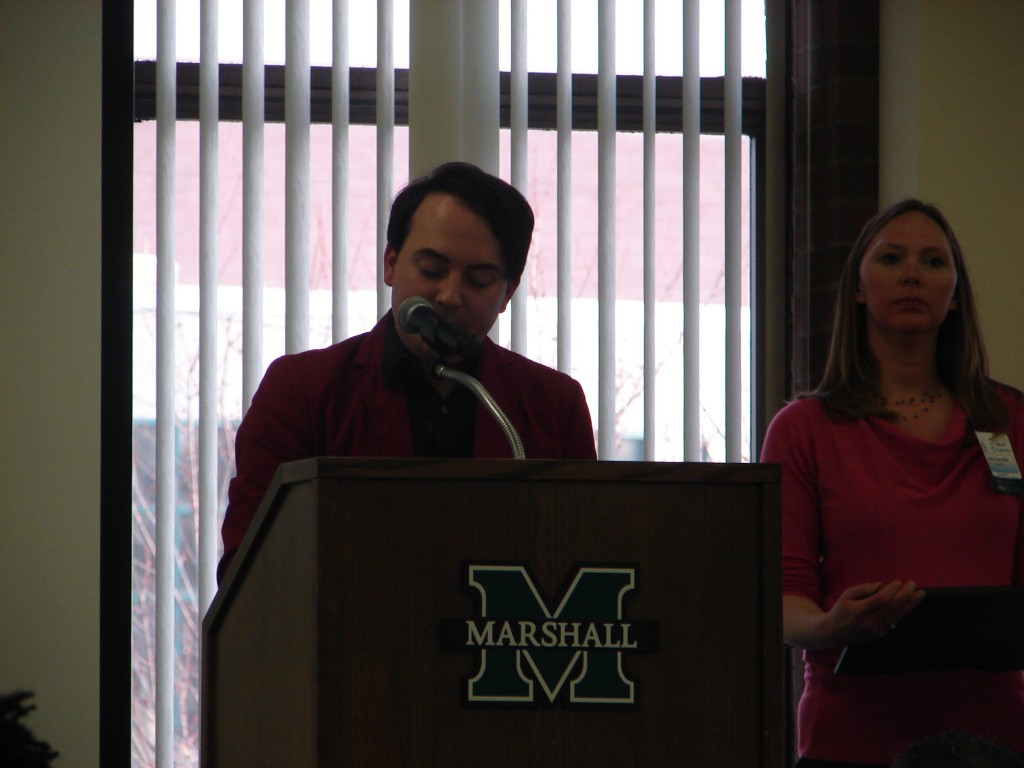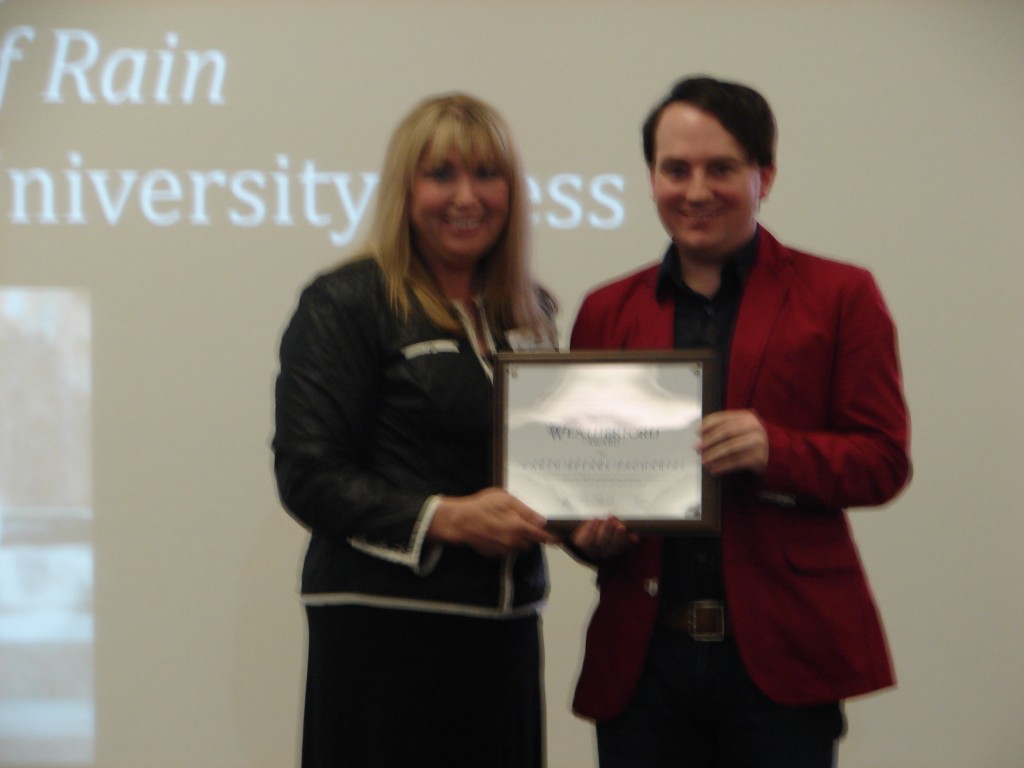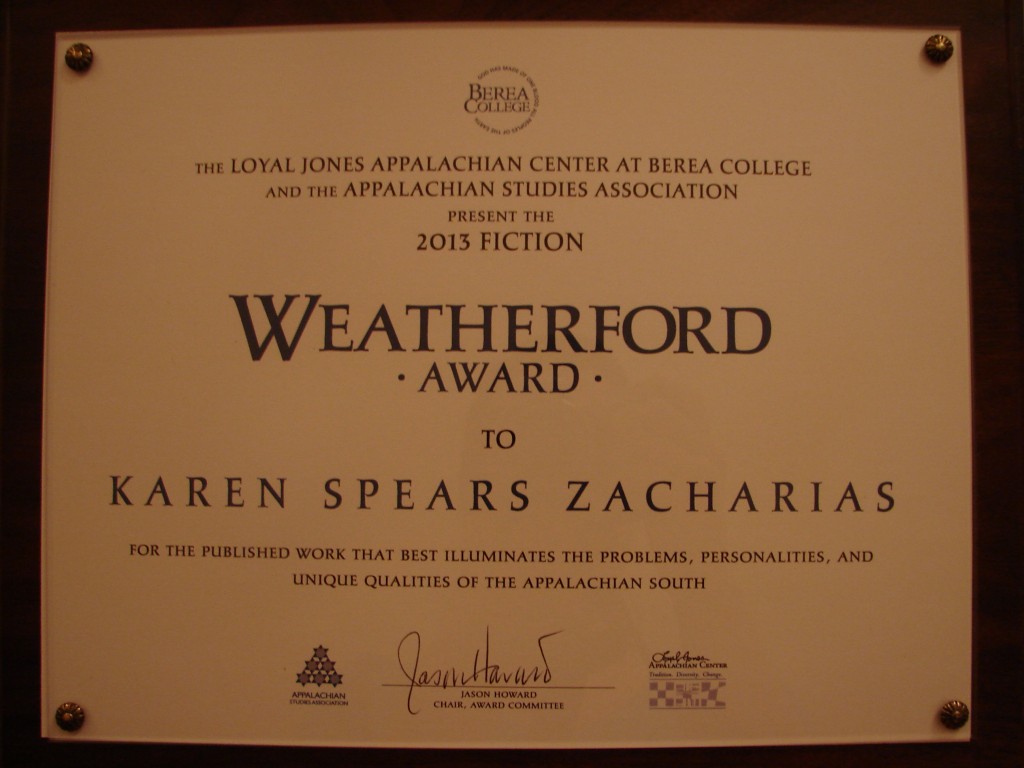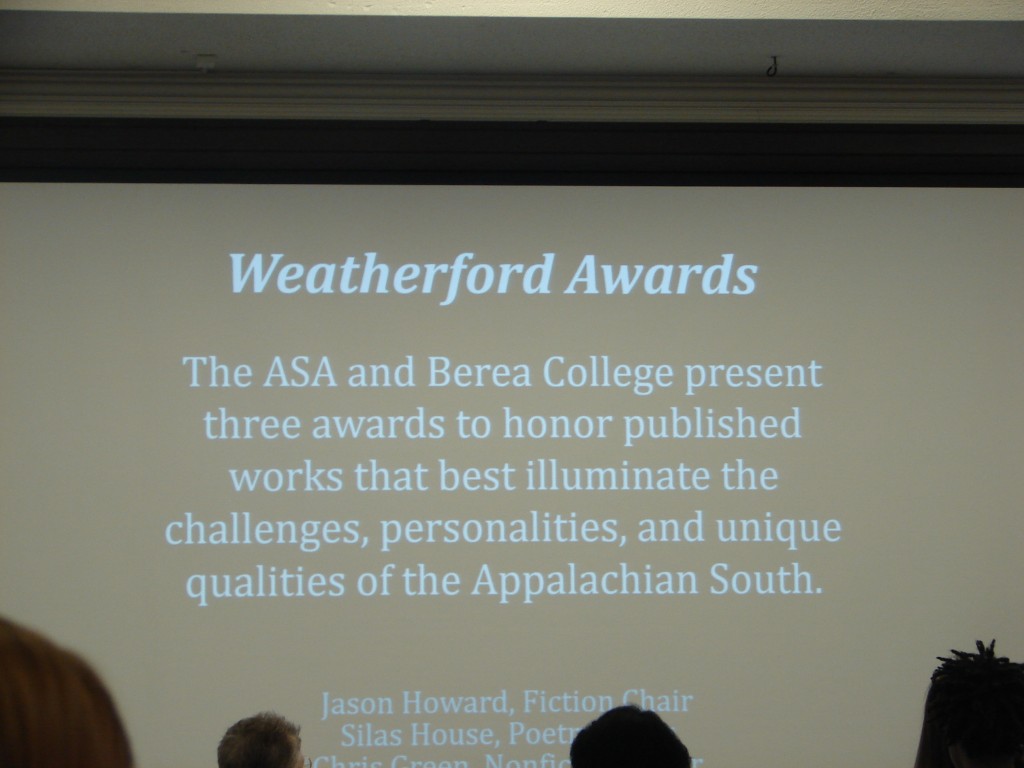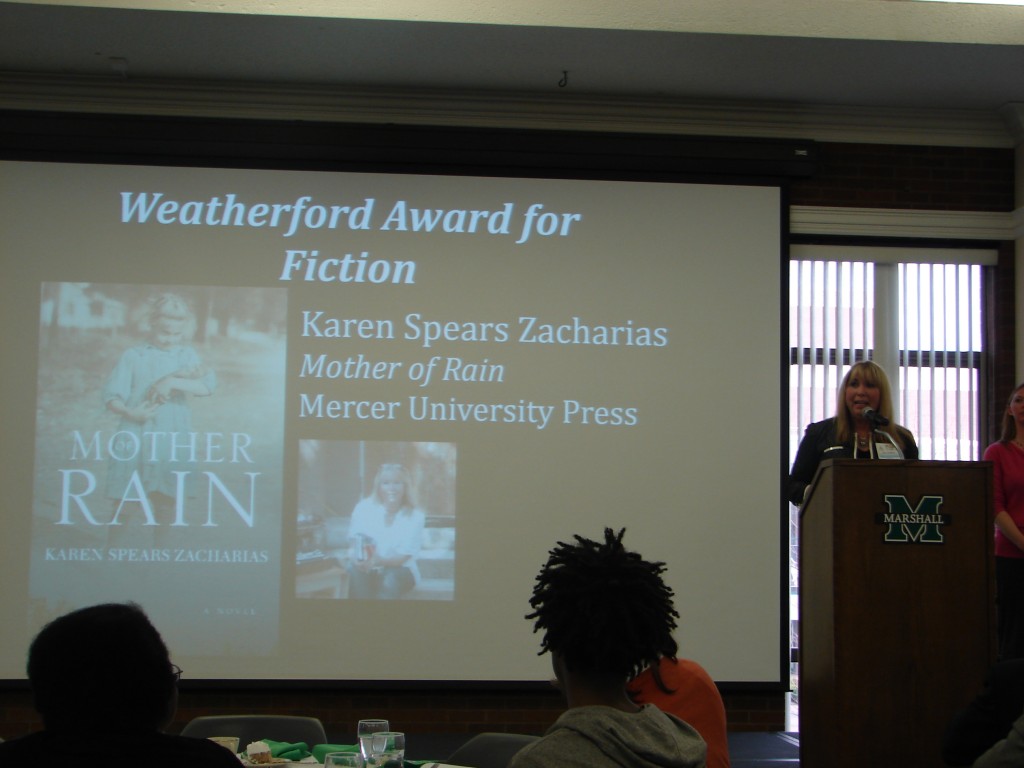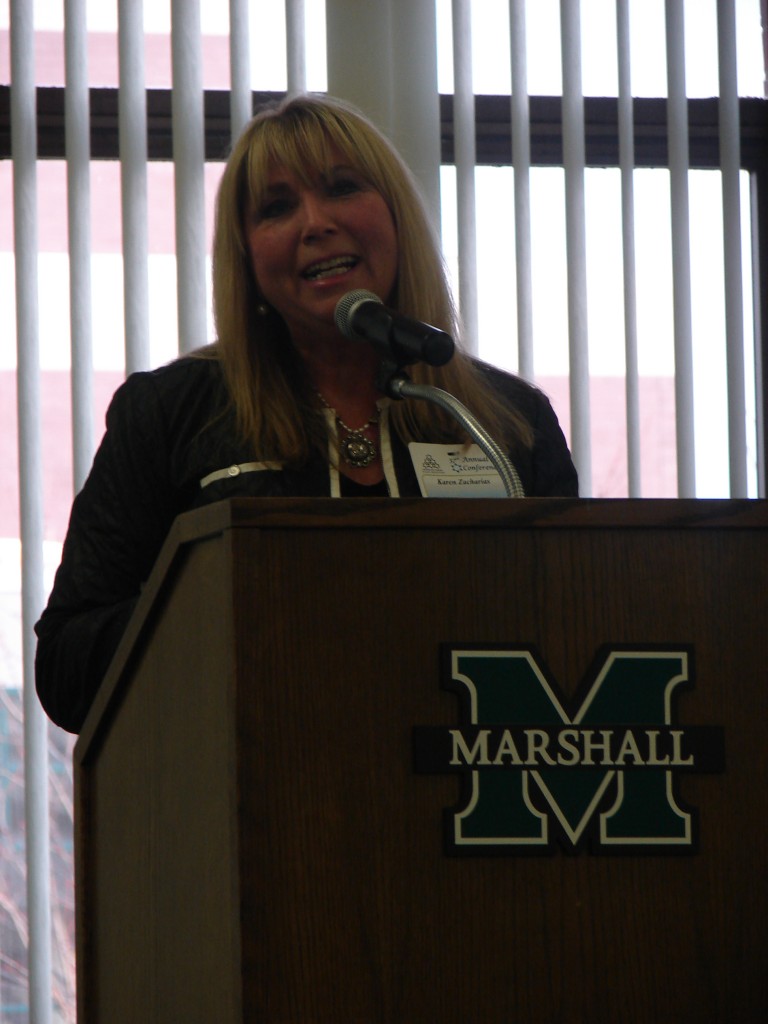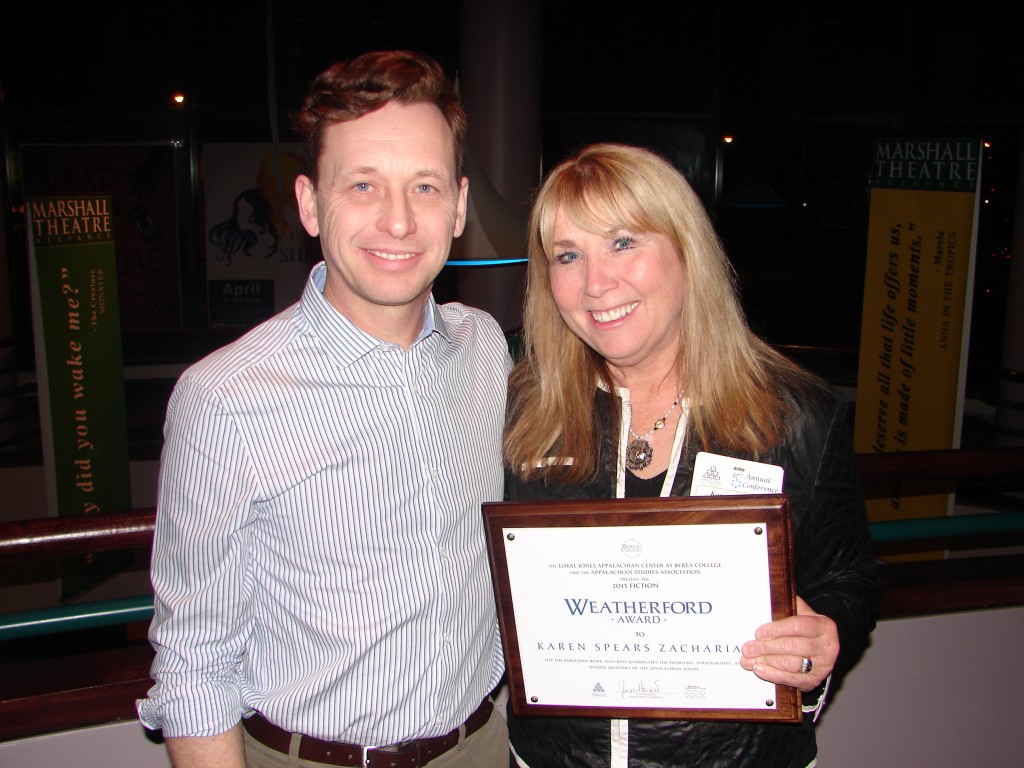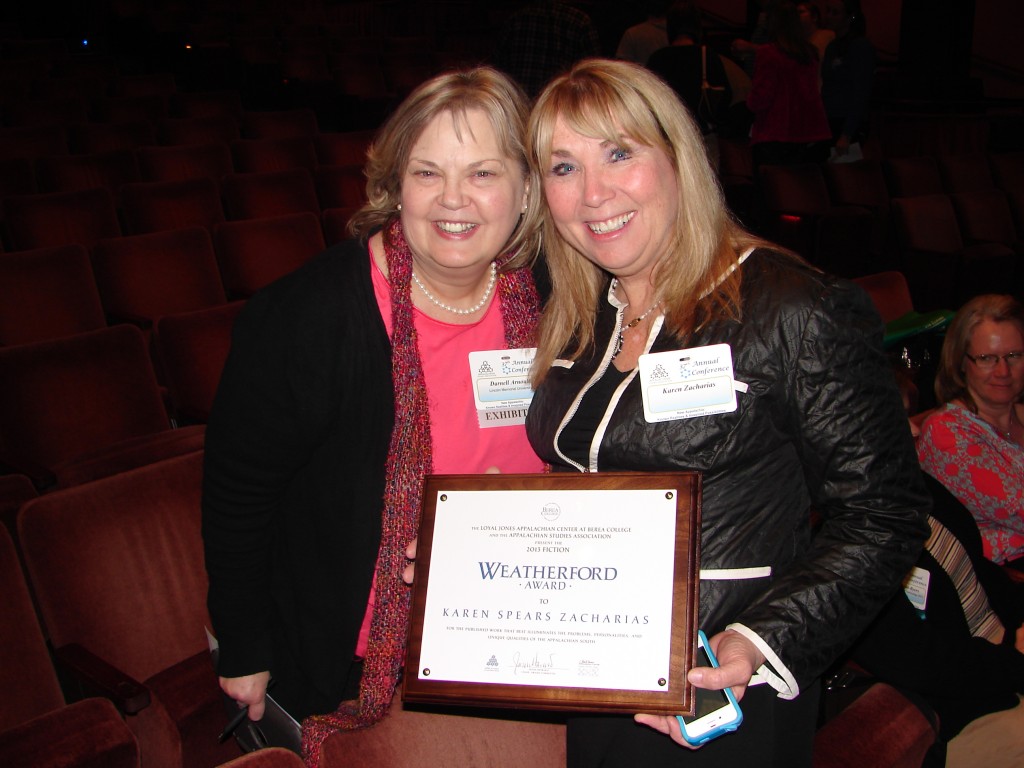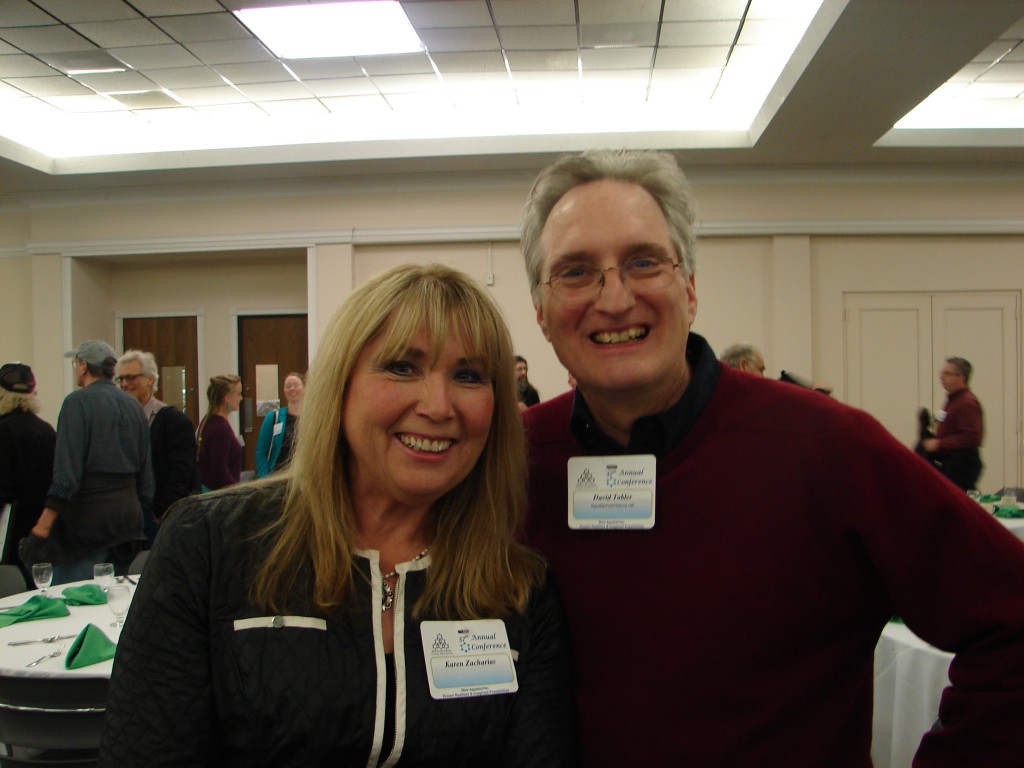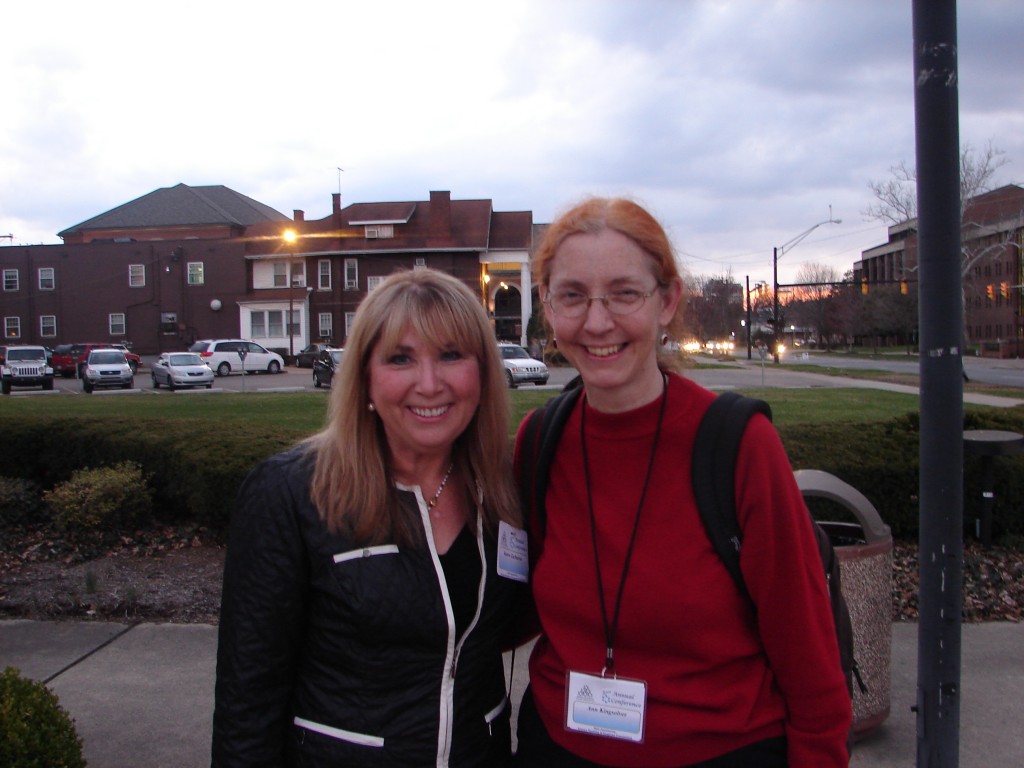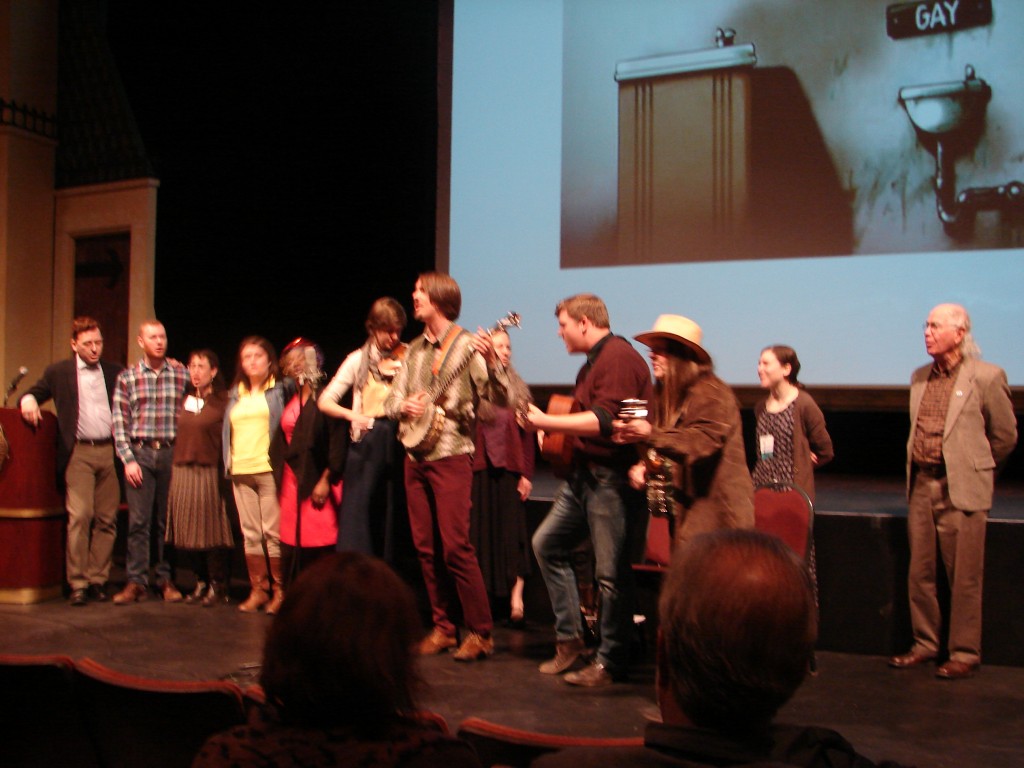In late February, four short weeks ago now, a letter arrived in my inbox.
I was on the phone with a big city New York agent working out details for another literary event, for another author, when I clicked open the email from Jason Howard, editor of the Appalachian Heritage at Berea College in Kentucky.
Dear Karen, Jason’s note began.
I’m excited to let you know that MOTHER OF RAIN has been awarded the 2013 Weatherford Award in Fiction by the Appalachian Studies Association!
I knew about the Weatherford, of course. Knew the award had been bestowed upon authors I had long admired: Barbara Kingsolver, Lee Smith, Amy Greene, Charles Frazier, Ron Rash, Darnell Arnoult, Dr.Michael Montgomery, whose Dictionary of Smoky Mountain English was the reference book from which I crafted Mother of Rain. To name a few of the hard-working & talented.
Writing truth always matters to me. But perhaps never more so than when I am writing about the place and the people I am from. Those seen and those unseen, those known and those only imagined through story.
It’s enough to put the dread of God in a girl, I’ll tell you. The idea of getting it wrong when writing about a place and a people you love. I spent years working on Mother of Rain. Having built a reputation as a journalist and crafter of non-fiction books didn’t seem to alleviate my fears none. It only made me worry more, worry that readers wouldn’t buy a book of fiction from a writer of memoirs, mayhem and murders.
It’s hard to explain how scary it can be, this writing thing I do. So much of it feels like failure, like not being good enough, smart enough, savvy enough, skilled enough. Books take years to write. There is no weekly paycheck to reward all that effort. No 401k, no health insurance, no two-week vacation, paid for. There is only you, the blank page, and a story needing telling.
And hope, that eternal flame the fuels the creative. Hope that perhaps, one day, you’ll stand alongside those you admire most and say something true and powerful. The way Silas House does when he says that Kudzu is our language. Or when he says that the act of telling one’s story is holy.
Or when Darnell Arnoult, herself a Weatherford alum, reads about how a mother sees God best in the eyes of her children.
Or when Dave Tabler, recorder in the New Appalachia tradition, speaks to the gift of being raised in Appalachia by grandparents devoted to the old traditions.
The gift of Appalachia is in our memories and the remembering of them, Silas House says.
The people at the Appalachian Studies Association know best if something rings true of Appalachia or not. They have carved notable careers from the hardwoods and the mountains. They don’t tolerate fools much. They don’t like stereotypes at all.
Which explains why I did the ugly cry that morning in February and a few times since. In his congratulatory note, Jason Howard asked me if I could come to West Virginia, to the Appalachian Studies Conference in late March to receive the Weatherford Award in person, the only truly proper way to get an award one works so hard to earn.
“Your daddy would be so proud,” wrote a Vietnam veteran who understood how much children like me long to hear those words from the parent long since dead.
Mama, too, I bet. She knew the story of Mother of Rain and had urged me to make people care about Maizee Hurd.
Daughter Shelby came with because she was the one who took the narratives I wrote and pieced them together like a patchwork quilt, cutting and pinning here, not there. And because, ultimately, it was for her generation and the ones that follow that I tell the story in the music and cadence of the language of my Appalachian ancestors.
My mama and daddy’s people.
Those judging the Weatherford understood that when I wrote about Christian Bend and the Holston River and Hawkins County, Tennessee, I was writing about a people and a place I know.
Just consider the remarks the judges made about your work, Jason Howard urged:
- Mother of Rain blew me away. I laughed, cried, and marked beautiful passages from beginning to end. The elephant story in the beginning actually served a purpose, relating to the rest of the book as opposed to being merely a gimmick. I cared about the characters and thought there was a significant contribution to Appalachian fiction in terms of mental illness and postpartum depression. Loved that it was set in East Tennessee. Don’t know of another book set in Hawkins Co. and surrounding area. Karen Spears Zacharias is an author to watch. Oh, and she really captured the language, cadence, and music of East Tennessee.
- [Mother of Rain] is a gem, with beautifully drawn Appalachian characters, a strong sense of time and place, and a deeply important and universal theme: the interconnection of our actions and guilt (the patchwork quilt image). Like Blake, Zacharias deals with the complexity of the “fearful symmetry,” adding a profundity to her tale that gives it a superb richness.
- The story of Maizee [in Mother of Rain] is well developed and the imagery is both beautiful and horrific (her dead, chicken-pecked mother still resonates). The story itself is tender and tragic and portrays Appalachia in one of the truest senses that I¹ve read in a long time. In addition, the characters stay with you long after you read them.
- Mother of Rain is a lyrical novel with characters that are fully formed and beautifully imagined. I admired how their actions and dialogue also captured the power of the setting, East Tennessee. Zacharias expertly captures complex themes—mountain guilt being but one—without ever being heavy-handed in her prose.
Appalachian, some say it in a derogatory and demeaning way.
But to me, Appalachia means home.
It’s the dirt from which I was made.
It is the reason I am a storyteller.

